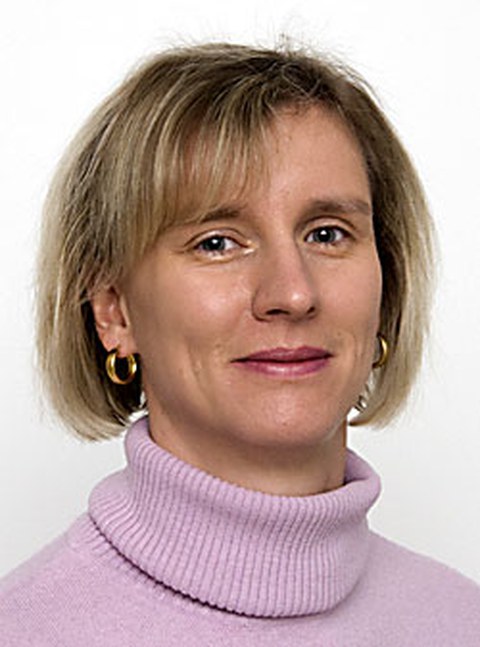The guardian of digital knowledge
(Interview from 2013)
Susann Mayer
Simone Georgi from Chemnitz always knew that she wanted to study at TU Dresden, the only question was what. Today, the communications expert heads the digital library at the SLUB (the Saxon State and University Library Dresden) – in her city of choice.
"I went to Dresden because the city had such a rich cultural scene," reflects the 39-year-old. "And maybe I also wanted to go to TUD because my father had studied here." She ultimately opted for a major in American studies; she liked the English language and Anglo-Saxon culture. "Then I looked for a minor that fit well with my major – and I landed on communication studies." A very new field at TUD back then, with an almost exotic ring to it. She found it so exciting and hands-on that she chose it as her major in 1994, in her second year of study, "naturally also with a view to later career prospects." Economics was then added as a third subject, "because I also wanted to do something practical," she adds with a healthy dose of irony.

Simone Georgi
She owes one great benefit of her degree to the restructuring the university was undergoing at that time. "Communication was a small but popular department with limited teaching capacity. We took some courses such as statistics in related disciplines," she says. "There were no defined study regulations for the minor in business and economics. So, we tried to speed up the enactment of the study regulations, but at the same time had to continue studying on the basis of changing requirements. We had to be organized, in some cases improvise, and be responsible and independent. I still derive a great benefit from those lessons today."
The skills she acquired and her combination of subjects played an important role in tipping the scales in her favor when she applied to work at the SLUB right after graduation. She has been responsible for American Studies, English Studies and Communication since 2001.
What exactly does that mean? "I make the selection when it comes to procuring new literature – including English-language books – study new release services and relevant blogs, keep abreast of the latest research topics, and also lead introductory sessions for first-year students in these subjects." Students also often come to her for advice on term paper topics. "I call it academic writing guidance when I help them arrive at a topic and find suitable literature."
Digitization has been Simone Georgi's second professional focus since 2011, when she became head of the digital library. More than 60,000 publications are available online from the SLUB, and an average of 1000 are added each month, prepared for online use in the SLUB's own digitization center. "The worldwide availability of specialist literature means, of course, much more convenient working for our users. For me and the library, it means that the services we offer must constantly evolve; we need to provide new releases and services electronically, and decide which older print works to digitize." Not just content but also copyright questions play a key role. So far, works from the 20th century can only be digitized in exceptional cases after long, hard work on the question of rights. "We hope that a bill on 'orphan' and out-of-print works, expected to be passed this year, will offer a solution to this problem."
What advice would she like to give today's students? "Make the most of your time at university, but don't forget to enjoy it. Have a goal and don't lose sight of it..."
You can find out what Simone Georgi has to tell other TUD alumni about her work at Absol(E)vent on January 31, 2014. She will be giving a tour of the SLUB from book stations to digitization robots.
Contact details:
SLUB, Dresdner Digitalisierungszentrum:
Simone Georgi
Geschäftsstelle Digitale Bibliothek
Zellescher Weg 18; 01069 Dresden
Tel.: +49-351-4677-170
Email: Simone Georgi
Web: SLUB Dresden
